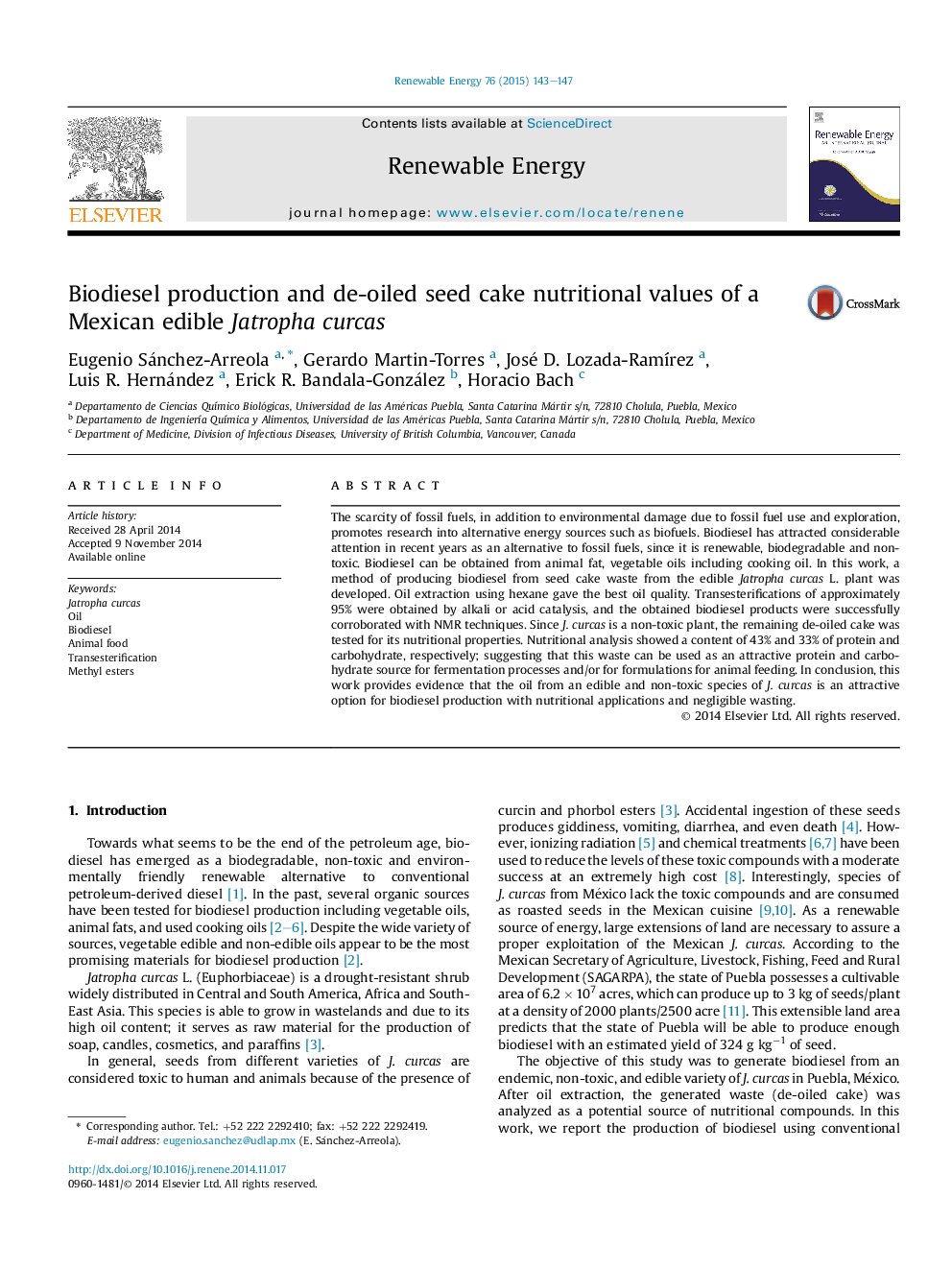| Article ID | Journal | Published Year | Pages | File Type |
|---|---|---|---|---|
| 6767433 | Renewable Energy | 2015 | 5 Pages |
Abstract
The scarcity of fossil fuels, in addition to environmental damage due to fossil fuel use and exploration, promotes research into alternative energy sources such as biofuels. Biodiesel has attracted considerable attention in recent years as an alternative to fossil fuels, since it is renewable, biodegradable and non-toxic. Biodiesel can be obtained from animal fat, vegetable oils including cooking oil. In this work, a method of producing biodiesel from seed cake waste from the edible Jatropha curcas L. plant was developed. Oil extraction using hexane gave the best oil quality. Transesterifications of approximately 95% were obtained by alkali or acid catalysis, and the obtained biodiesel products were successfully corroborated with NMR techniques. Since J. curcas is a non-toxic plant, the remaining de-oiled cake was tested for its nutritional properties. Nutritional analysis showed a content of 43% and 33% of protein and carbohydrate, respectively; suggesting that this waste can be used as an attractive protein and carbohydrate source for fermentation processes and/or for formulations for animal feeding. In conclusion, this work provides evidence that the oil from an edible and non-toxic species of J. curcas is an attractive option for biodiesel production with nutritional applications and negligible wasting.
Related Topics
Physical Sciences and Engineering
Energy
Renewable Energy, Sustainability and the Environment
Authors
Eugenio Sánchez-Arreola, Gerardo Martin-Torres, José D. Lozada-RamÃrez, Luis R. Hernández, Erick R. Bandala-González, Horacio Bach,
